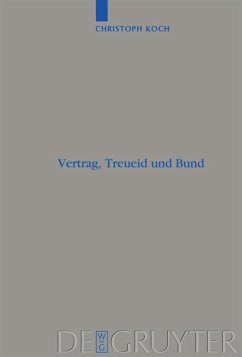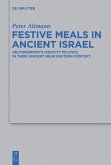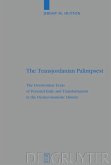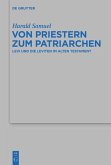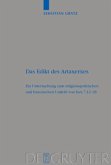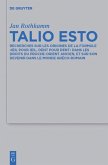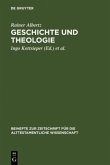The notion that God, Yahweh, concluded a "Covenant" or "Contract" with his people of Israel plays a prominent part in the Old Testament. Numerous correspondences between the texts of Ancient Oriental contracts and the Book of Deuteronomy suggest that political treaties served as model for the theology of the biblical covenant. Using extant source material, the present study attempts to trace the complicated path into the Old Testament taken by an instrument used for the exercise of power in the Ancient Orient.
Die Vorstellung, der Gott Jahwe habe unter Mose mit seinem Volk Israel einen "Bund" bzw. "Vertrag" geschlossen, spielt im Alten Testament eine prominente Rolle. Zahlreiche formale und inhaltliche Parallelen zwischen altorientalischen Vasallenverträgen und Treueiden auf der einen und dem Buch Deuteronomium auf der anderen Seite machen es wahrscheinlich, dass politische Vertragstexte den theologischen Anstoß und die literarische Vorlage für die biblische Bundestheologie gebildet haben. Wie genau das Verhältnis zwischen Bundestheologie und altorientalischem Vertragsrecht zu bestimmen ist, ist freilich in der gegenwärtigen Forschung höchst umstritten. Die vorliegende Untersuchung versucht, vor dem Hintergrund des derzeit verfügbaren altorientalischen und biblischen Quellenmaterials den komplizierten Weg eines politischen Herrschaftsinstruments des Alten Orients ins Alte Testament nachzuzeichnen. Dabei sind die folgenden Fragestellungen leitend: 1. Woher stammen die in den bundestheologischen Texten rezipierten vertragsrechtlichen Traditionen? 2. Wann ist die Bundestheologie ausgebildet worden? 3. Wie könnte der Rezeptionsprozess verlaufen sein, an dessen Ende die Bundestheologie stand?
Die Vorstellung, der Gott Jahwe habe unter Mose mit seinem Volk Israel einen "Bund" bzw. "Vertrag" geschlossen, spielt im Alten Testament eine prominente Rolle. Zahlreiche formale und inhaltliche Parallelen zwischen altorientalischen Vasallenverträgen und Treueiden auf der einen und dem Buch Deuteronomium auf der anderen Seite machen es wahrscheinlich, dass politische Vertragstexte den theologischen Anstoß und die literarische Vorlage für die biblische Bundestheologie gebildet haben. Wie genau das Verhältnis zwischen Bundestheologie und altorientalischem Vertragsrecht zu bestimmen ist, ist freilich in der gegenwärtigen Forschung höchst umstritten. Die vorliegende Untersuchung versucht, vor dem Hintergrund des derzeit verfügbaren altorientalischen und biblischen Quellenmaterials den komplizierten Weg eines politischen Herrschaftsinstruments des Alten Orients ins Alte Testament nachzuzeichnen. Dabei sind die folgenden Fragestellungen leitend: 1. Woher stammen die in den bundestheologischen Texten rezipierten vertragsrechtlichen Traditionen? 2. Wann ist die Bundestheologie ausgebildet worden? 3. Wie könnte der Rezeptionsprozess verlaufen sein, an dessen Ende die Bundestheologie stand?
"Vertrag, Treueid und Bund represents a significant contribution to the study of Deuteronomy which is sure to stimulate future scholarship on this biblical book and the history of covenant theology in biblical literature." -- William Morrow in: Journal of Hebrew Scriptures 10/2010
"The author is to be congratulated on a thorough, well-written and sane exploration of a highly complex and centrally important area of research." -- J. L. W. Schaper in: Book List - Society for Old Testament Study 2009
"The author is to be congratulated on a thorough, well-written and sane exploration of a highly complex and centrally important area of research." -- J. L. W. Schaper in: Book List - Society for Old Testament Study 2009

